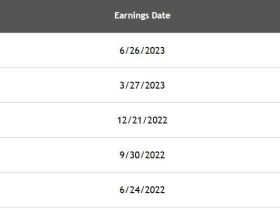U.S. stocks saw a surprising bounce on Friday, culminating in the S&P 500 index’s biggest intraday comeback since the March banking crisis, even though a monthly jobs report for September came in much higher than expected.
So, are investors no longer worried about the Federal Reserve’s inflation fight or higher interest rates wrecking the U.S. economy?
“Stocks initially sold off on the blockbuster jobs report which indicates the Fed may not be done,” said Gina Bolvin, president of Bolvin Wealth Management Group. “However, after digesting the strong labor market is still strong, stocks rallied. And why shouldn’t they? Will good news- finally – be good news?”
Bolvin said part of the rally could be seasonal, with September typically being a rough months for stocks. There also has been increased optimism that the earnings recession for American corporations may be over, she said.
Analysts are predicting corporate earnings growth rates of 5.9% for the fourth quarter for S&P500 companies, according to John Butters, senior earnings analyst at FactSet. Estimates are for the third-quarter of 2023 after the stock index’s fourth straight quarterly earnings decline on a year-over-year basis.
At Friday’s session lows, the S&P 500 index
SPX
was down 0.9%, but it ended up posting a 1.2% advance, its largest intraday comeback since March 24, 2023, according to Dow Jones Market Data. The Dow Jones Industrial Average
DJIA
booked a 0.9% gain and the Nasdaq Composite Index
COMP
rose 1.6% higher.
“The movement in stocks today is certainly encouraging given yields are up as well,” said Chris Fasciano, portfolio manager, Commonwealth Financial Network. “But we will need to see follow through next week.”
The yield on 10-year Treasury
BX:TMUBMUSD10Y
note rose for five straight weeks in a row to 4.783% on Friday, while the 30-year yield
BX:TMUBMUSD30Y
rose to 4.941%, according to Dow Jones Market Data.
Read: Why 5% bond yields could wreak havoc on the market
While the U.S. stock-market will be open for business on Monday, the bond market will be closed for Columbus Day and Indigenous Peoples Day holiday, giving investors somewhat of a pause before a big week of economic data that could shape the Fed’s next decision on interest rates.
“Ultimately, stocks and bonds will take their cues next week from the economic releases,” Fasciano told MarketWatch.
Key items on the calendar for the week will be September inflation reports, with the producer-price index on Wednesday and the consumer-price index due Thursday. In between, Fed minutes of its policy meeting in September also are due to be released Wednesday.
“That makes next week an important week for the future direction of both the bond and equity markets as the Fed will certainly be focused on those reports prior to their next meeting on Oct. 31-Nov. 1,” Fasciano said.
Read the full article here











Leave a Reply